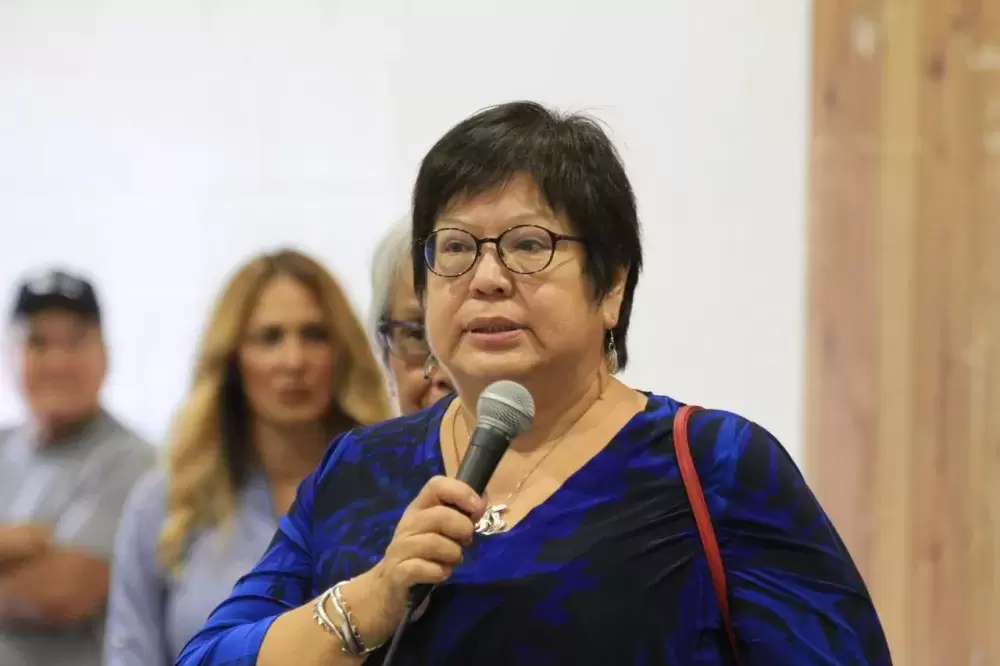The Webster’s dictionary defines reconciliation as the act of making friendly again, settling a quarrel and making ideas or accounts consistent. But in the recent years the term has come to specifically refer to Canada’s relationship with its indigenous peoples, and what could be done to improve upon a history marked by harmful policies, such as forced assimilation through the Indian residential school system, the banning of potlatches and capitalizing from traditional territories without First Nation’s consent.
Reconciliation is one of the most common terms used in Canadian politics today, and how well the government can improve relations with indigenous peoples has become a marker for the success of the existing governments in Ottawa and British Columbia. As officials from Fisheries and Oceans Canada plan to gauge what reconciliation should be for First Nations across the country, a discussion on determining what the term means for Vancouver Island’s west coast nations arose during the Nuu-chah-nulth Tribal Council’s Annual General Meeting on Sept. 26.
To begin the discussion Ken Watts, the former NTC vice-president who was serving as an advisor to the tribal council, said nations need to clarify how they should benefit from the federal government’s commitment to follow the United Nations Declaration on the Rights of Indigenous Peoples and the Truth and Reconciliation Commission’s 94 Calls to Action.
“There needs to be a strategy,” he said. “What is the actual strategy and how do we see those documents implanted?”
In July the Government of Canada committed to “transformative change” in how it works with First Nations with 10 principles to raise the standard of cooperation. As supported by Canada’s Constitution Act, these principles rely on the formal recognition of First Nations’ right to self-determination and self-government.
But during the discussion in September NTC President Judith Sayers noted that these principles were drafted on the federal government’s terms.
“The government is defining what they want to do,” she said. “They drafted those 10 principles without even talking to any First Nations.”
Amending the negative effects of the European colonization of First Nations’ territories is part of Canada’s reconciliation mandate.
“We will continue the process of de-colonization and hasten the end of its legacy wherever it remains in our laws and policies,” stated the federal Department of Justice with the announcement of the 10 principles. “These principles are a starting point to support efforts to end the denial of indigenous rights that led to disempowerment and assimilationist policies and practices.”
“The prime minister talks about decolonization. At his address to the UN last week he talked about we have to dismantle the colonial structures,” said Sayers. “But I don’t think it’s our structures that have to be decolonized, I think it’s theirs.”
Kiista, a delegate from Ahousaht, stressed the importance of Canada respecting the First Nation’s ancestral ways, including the hereditary chief and his people.
“For us to recognize and reconcile with the government, they have to acknowledge my tyee, they have to acknowledge our muschim,” he said. “They have to acknowledge the unborn muschim and unborn tyees that are going to be here.”
Kiista added that progress is needed in how Canada perceives Nuu-chah-nulth traditions.
“That’s the No. 1 thing that the government is going to have to do, to recognise who we are,” he said. “I’m not a Canadian. I’m Ahousaht, Nuu-chah-nulth-aht.”
Tla-o-qui-aht Chief Councillor Elmer Frank said it’s important to define the meaning of words frequently used by the federal government in reference to First Nations.
“They don’t even know what to call us,” he said. “In the ‘60s and ‘70s they called us Indians, in the ‘80s they called us aboriginal, and now we’re back to indigenous people. I think it’s really important for us to take the lead in changing that language of reconciliation.”
It’s problematic that the government’s use of the word can be unclear, added Ehattesaht Elder Tom Curley.
“The majority of our people don’t seem understand the word reconciliation,” he said. “I don’t know what it means, I don’t know where it’s going to lead us to. Are we going to gain something? Are we going to be better at the end of it?”
Meaningful reconciliation is also needed within First Nations, said Tseshaht Chief Councillor Cynthia Dick.
“We have to start talking about reconciliation amongst ourselves, amongst our nations and in our own communities,” she said.
To better engage more members of Nuu-chah-nulth communities, the tribal council plans to host a two-day forum in the future, with participants broken into small groups to discuss what reconciliation should mean. The date and location of this forum is yet to be announced.







